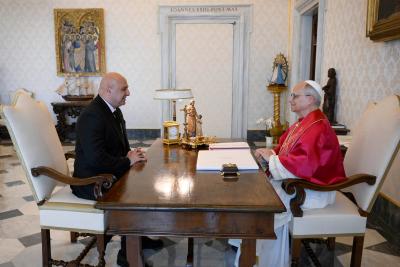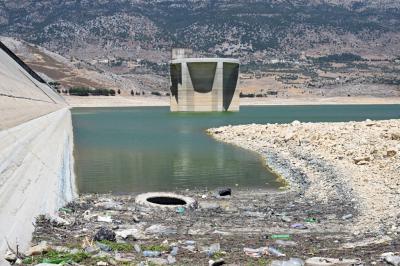Economist Marc Touati warns of a worsening financial crisis as France’s public finances spiral out of control.

French Prime Minister François Bayrou has presented his budget plan. But what should have been the real priorities to immediately achieve the €40 billion in savings that France needs?
“Focusing solely on €40 billion in cuts makes little sense,” Touati says. “If economic growth drops to 0.4%, unemployment rises to 9%, and bond yields climb further—all highly likely scenarios—the public deficit will widen by at least €40 billion. That’s why, surprisingly to some, the most urgent measure is to cut taxes for everyone.”
Touati calls for a reduction in the CSG levy and production taxes—€25 billion each—creating a €50 billion revenue shortfall that he argues would be partly offset by growth and the elimination of tax loopholes, recovering at least €30 billion. At the same time, he stresses the need to slash operating expenses, which account for 32.4% of all public spending, second only to social benefits at 44.7%. These should be cut by at least €50 billion.
Fraud is another target. Touati estimates tax fraud costs €30–50 billion annually, and social fraud between €20–40 billion. Tackling both could yield up to €50 billion in savings. “Even with tax cuts, the public deficit could be reduced by at least €80 billion in a year. The solutions are there; all that’s needed is the political courage to implement them.”
Debt at Crisis Levels
France’s debt is nearly double the Maastricht limit, making it one of the most indebted eurozone countries—behind only Greece and Italy. “It’s worse than that,” Touati says. “France is the only eurozone country with deficits and debt rising so sharply. Since 2024, it has had the highest public deficit in the bloc.”
Debt has soared without pause, outpacing economic growth. Since early 2020, public debt has surged by €958.4 billion, while GDP in nominal terms—boosted by inflation—rose only €500.8 billion. “That’s a gap of €457.6 billion,” he points out. “Since 2017, the gap is €448 billion.”
Public spending has climbed from 40.9% of GDP in 1973 to 57% in 2024. “Will we have to slash spending abruptly, like Argentina, by 2027?” Touati warns that the financial crisis cannot wait two more years: “We have no choice, and no time. From 1980 to 2024, public spending rose 680%, while GDP grew 550%—a 130-point gap. Another national scandal.”
The Debt Trap Tightens
France could soon spend more servicing its debt than serving its citizens. Debt service costs are projected to hit €100 billion soon. Interest payments alone will reach €70 billion this year and are expected to hit €100 billion annually in the short term, according to the Finance Ministry.
“Simply paying interest will inflate the debt further—a debt bubble that’s existed since 2007, but now at dramatic proportions,” Touati says.
Political Crisis Ahead
With a looming political crisis, credit rating agencies are expected to downgrade France to single A. That would push bond yields to 4–4.5%, increasing borrowing costs and choking investment by companies and households. “This will deepen the recession already taking hold in our ‘sweet France.’ But apart from that, everything’s fine, Madame la Marquise,” he adds sarcastically.
France’s Missed Opportunity
Touati laments France’s endless debates over retirement reform while avoiding deeper discussions on public spending and economic growth strategies. “France is the only major developed nation that has refused to modernize its economic structures to generate more wealth and jobs.”
What’s needed, he says, is a “benevolent shock therapy”: sweeping tax cuts for businesses and households, drastic reductions in public spending—especially operating costs—lower labor costs, and higher net wages.
“It’s urgent. The clock is ticking for the French economy.”
Please post your comments on:
[email protected]
 Politics
Politics













